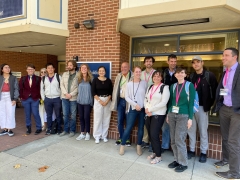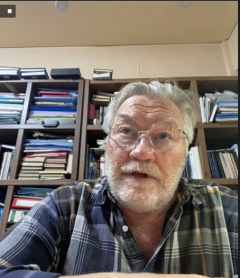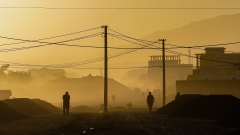Vladimir Pozner Speaks In-Person at the Middlebury Institute
| by Jarlath McGuckin
Veteran journalist, author, and television travelogue host, Vladimir Pozner, visited the Institute campus for a series of lectures. Mr. Pozner spoke with students about relations between the United States and Russia, mass media in both countries, and the challenges of the next century




